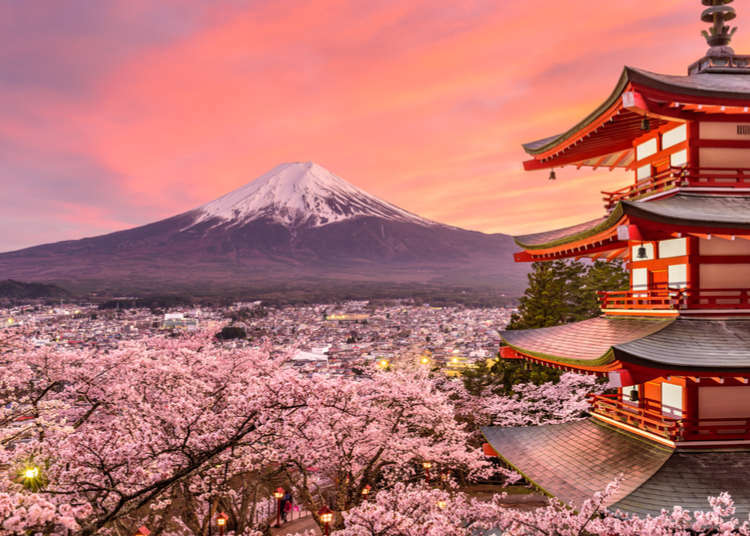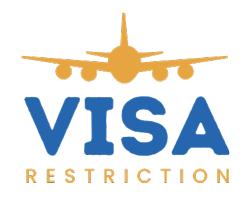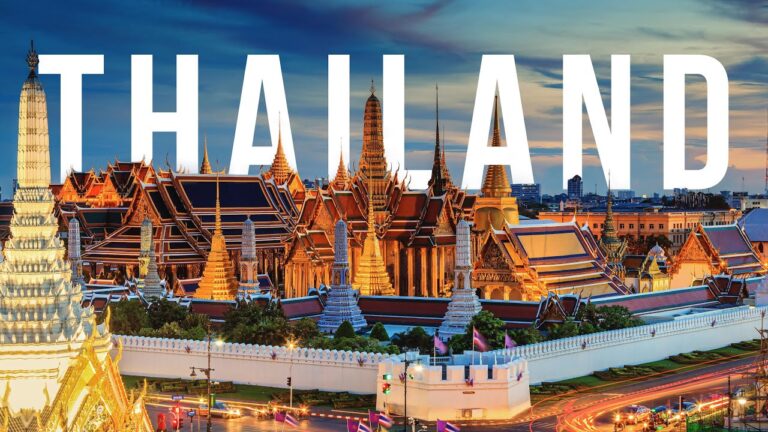Is It Safe to Travel to Japan: Tourist Guide

Safety in Japan
Traveling to Japan is generally safe; the country has a very low crime rate. However, travelers should be prepared for natural disasters and know where to find emergency resources. This section will help you understand potential risks and where to get help.
Natural Disasters Awareness
Japan is susceptible to a range of natural disasters, including typhoons, earthquakes, tsunamis, and volcanic eruptions. It is crucial to be aware of these dangers and know how to react in case of emergencies (Japan Travel). Here are some key points to keep in mind:
- Typhoons: Common during the summer and early autumn seasons. Be sure to monitor weather updates.
- Earthquakes: Frequent, so familiarize yourself with earthquake safety protocols.
- Tsunamis: Often follow significant offshore earthquakes. Know your nearest high ground.
- Volcanic Eruptions: Less common, but possible in volcanic regions.
For prevention, always be aware of your surroundings and have a basic emergency plan. You might want to prepare an emergency kit and know the location of the nearest evacuation area.
| Natural Disaster | Timeframe | Precautions |
|---|---|---|
| Typhoons | Summer-Early Autumn | Monitor weather updates |
| Earthquakes | Year-Round | Familiarize with safety protocols |
| Tsunamis | Post-Earthquakes | Know nearest high ground |
| Volcanic Eruptions | Variable | Be informed about active volcanoes |
Emergency Resources for Travelers
Knowing where to find emergency information can be lifesaving. Japan offers several resources to help you in case of natural disasters. Here are some essential tools and contacts:
- Japan Safe Travel Information (Web)
- Safety Tips (App Download)
- NHK WORLD-JAPAN (Web and App Download): Provides English-language news and emergency updates.
Also, keep in mind the following contacts for immediate assistance:
- Metropolitan Police English Helpline: 03-3501-0110
- Tokyo English Life Line (TELL) for mental health support: 03-5774-0992
- JNTO Tourist Information Center, Tokyo: 03-3201-3331
It’s advisable to have travel insurance that covers emergencies to ensure peace of mind during your trip. For more details on the importance of travel insurance, visit our article on is travel insurance worth it.
| Resource | Contact |
|---|---|
| Metropolitan Police English Helpline | 03-3501-0110 |
| Tokyo English Life Line (TELL) | 03-5774-0992 |
| JNTO Tourist Information Center | 03-3201-3331 |
Preparing in advance by understanding natural disaster risks and knowing how to access emergency resources will help you travel wisely in Japan. Stay updated and safe with these tools and contacts. For more international travel safety information, you can explore articles like is it safe to travel to mexico and is it safe to travel to egypt.
Travel Precautions
When considering if it is safe to travel to Japan, it’s crucial to be aware of health, vaccination, and security concerns.
Health and Vaccinations
Health precautions are essential for a safe trip. Japan is generally safe from many infectious diseases, but there are still health measures to keep in mind.
Common Vaccines
While no specific vaccines are required for travel to Japan, the CDC recommends that travelers be up to date on routine vaccines. These include:
- Measles, Mumps, and Rubella (MMR)
- Diphtheria, Tetanus, and Pertussis (DTP)
- Chickenpox (Varicella)
- Polio
- Influenza
Rabies
Rabies vaccines are accessible throughout Japan. If you’re engaging in activities that may expose you to animals, consider a pre-exposure rabies vaccination. (CDC Travel)
Insect Bites
Bug bites can spread diseases in Japan. Preventive measures include using insect repellent and avoiding areas with high insect populations. Refer to CDC guidelines for comprehensive advice.
| Health Concern | Recommended Action |
|---|---|
| Routine Vaccines | Ensure up-to-date |
| Rabies | Pre-exposure vaccine if needed |
| Bug Bites | Use insect repellent |
For more detailed advice on health precautions, visit our section on health and vaccinations.
Security Concerns
Japan is known for its low crime rates, but it’s still essential to be cautious and aware of your surroundings.
General Safety
Japan has a reputation for being one of the safest countries in the world. Petty crime is low, but you should still practice standard precautions:
- Keep your belongings secure.
- Avoid flashing valuables.
- Stick to well-lit areas at night.
Natural Disasters
Due to its location on tectonic plates, Japan experiences frequent earthquakes. It’s vital to be prepared:
- Stay calm during earthquakes.
- Follow staff instructions.
- Know evacuation routes in hotels.
- Extinguish naked flames quickly.
- Keep phones charged.
- Move to higher ground if by the coast during a large earthquake. (Japan Travel)
| Security Concern | Recommended Action |
|---|---|
| Petty Crime | Secure belongings |
| Earthquakes | Follow evacuation protocols |
For more safety tips and precautions, visit our section on travel safety.
By being aware of health and security precautions, you will be better prepared for a safe trip to Japan. For insights on other destinations, check articles like is it safe to travel to mexico or is it safe to travel to thailand.
Regions to Be Cautious
Noteworthy Neighborhoods
When considering the question, “is it safe to travel to Japan,” it’s important to be aware of certain areas where caution is advised. Here are some neighborhoods that you should be mindful of when traveling in Japan:
-
Kamagasaki, Osaka: Known for having the largest homeless population in Japan, Kamagasaki also has a history of organized crime and riots, the most recent one in 2008. Visitors should exercise caution and avoid venturing into this area alone.
-
Kabukicho, Tokyo: The biggest red-light district in Japan and the world, Kabukicho, can be unsafe at night. Tourists often encounter aggressive promoters trying to lure them into various businesses, some of which may pose financial risks. Police in riot gear are a common sight due to the area’s reputation (More Than Relo).
-
Roppongi, Tokyo: Popular for its nightlife, Roppongi can be risky due to dangerous scammers and promoters. The US Embassy advises citizens to avoid bars and promoters in this area. Following a promoter can result in robbery, assault, or even kidnapping. Excessive drinking at bars is also a risk.
-
Shinsekai, Osaka: This neighborhood has higher crime rates due to neglect. Although it doesn’t see as much organized crime as in the past, visitors should still stay vigilant. Given its history and current state, most Osaka residents avoid it (More Than Relo).
-
Ueno, Tokyo: Generally safe during the day, but the area around the park becomes less pleasant after 9:00 p.m. due to the presence of many homeless individuals. With minimal nightlife, it is advisable to leave the area after attractions like museums and the zoo have closed (More Than Relo).
Potential Risks
Travelers should be mindful of potential risks associated with specific regions:
| Neighborhood | Potential Risks |
|---|---|
| Kamagasaki, Osaka | Organized crime activities, riots |
| Kabukicho, Tokyo | Aggressive promoters, financial scams, potential for violence |
| Roppongi, Tokyo | Scammers, risk of robbery or assault, excessive drinking dangers |
| Shinsekai, Osaka | Higher crime rates, less police presence |
| Ueno, Tokyo | Unpleasant after dark, homeless population |
For more information on travel safety in various countries, visit our articles on is it safe to travel to mexico, is it safe to travel to turkey, and is it safe to travel to egypt. Input on safety measures and personal experiences greatly help in making an informed decision.
Understanding the potential risks and being cautious in these neighborhoods can help ensure a safer and more enjoyable travel experience. Stay aware, avoid questionable areas, and always keep personal safety a priority.
COVID-19 Updates in Japan
Entry Requirements
To address the question is it safe to travel to Japan, it’s important to be aware of the latest entry requirements. As of April 29, 2023, Japan has lifted all COVID-related entry requirements, including testing and vaccination certificates (Japan Guide). This marks the end of over three years of COVID-related border measures in the country.
| Previous Requirement | Status as of April 29, 2023 |
|---|---|
| Pre-departure Testing | Lifted |
| Vaccination Certificate | Not Required |
| Health Declaration Form | Not Required |
By eliminating these barriers, Japan aims to make it easier for tourists to visit and enjoy their stay without the complexities related to COVID protocols.
Quarantine Measures
Regarding quarantine measures, starting from April 29, 2023, Japan implemented quarantine measures for all travelers and returnees entering the country (Ministry of Foreign Affairs of Japan). It is essential for you to comply with these measures to ensure your safety and the safety of others.
| Traveler Category | Quarantine Requirement |
|---|---|
| Fully Vaccinated | No Quarantine Required |
| Partially/Unvaccinated | No Quarantine Required |
To get up-to-date information, it is advisable to check official sources such as the Ministry of Foreign Affairs of Japan. If you have concerns about safety measures, consider reading about Thailand or other destinations in the region.
By staying informed and adhering to the outlined regulations, you can ensure a safe and enjoyable travel experience in Japan during these times.
Cultural Etiquette
Understanding cultural etiquette is essential for a safe and enjoyable experience in Japan. This section highlights considerations for LGBTQIA+ travelers and women or solo travelers to ensure their trip is comfortable and secure.
LGBTQIA+ Travelers Considerations
Japan is generally an incredibly safe destination for LGBTQIA+ travelers. The country has made significant strides towards inclusivity and acceptance. While the societal acceptance level might vary, urban areas like Tokyo and Osaka are known for their vibrant LGBTQIA+ scenes, with numerous bars, clubs, and events catering to the community.
- Legal Status: Same-sex activity is legal in Japan, but there is no nationwide legal recognition of same-sex marriages.
- Safety: Hate crimes against LGBTQIA+ individuals are rare. However, discreet behavior is still recommended in less urban regions.
- Cultural Sensitivity: Understanding respectful behavior and cultural norms can enhance your travel experience.
For more safety tips specific to LGBTQIA+ travelers, you might want to look into traveling to countries with similar safety levels such as is it safe to travel to mexico or is costa rica safe to travel.
Women and Solo Travelers Safety
Japan is widely considered a safe destination for women and solo travelers. The society emphasizes respect and safety, making it a comfortable destination for female tourists.
- General Safety: Verbal street harassment is relatively uncommon. However, precautions have been taken to address issues like ‘chikan’ (non-consensual groping) in crowded trains. Women-only train carriages are available on many lines, especially during peak hours.
- Traveling Alone: Solo female travelers can feel safe exploring Japan, even in the lively neighborhoods of Tokyo. Noteworthy places like Kabuki-cho in Shinjuku have a reputation but are generally safe with visible police presence and diverse visitors, including families (Quora).
- Emergency Resources: Utilize emergency resources and stay aware of local safety practices. Carry a local SIM card or portable Wi-Fi device to stay connected.
For solo travelers interested in visiting places with a similar safety level, check out other destinations like is it safe to travel to egypt or is thailand safe to travel.
Keep these considerations in mind to ensure a safe and enjoyable visit to Japan. For more on specific travel tips and safety suggestions, explore articles like is greece safe to travel to or is it safe to travel to paris right now.
Travel Insurance
Importance of Coverage
When asking, “is it safe to travel to Japan”, one crucial aspect to consider is travel insurance. Having adequate travel insurance is essential for mitigating risks and ensuring a worry-free trip. Travel insurance can cover a wide range of unforeseen events, including medical emergencies, trip cancellations, lost luggage, and more.
For travelers visiting Japan, it is highly recommended to sign up for travel insurance before departure. Several incidents can occur during your travels, and having the right coverage can save you from significant financial strain. For example, unexpected health issues may require medical attention and having insurance ensures that you are covered for medical expenses.
| Insurance Coverage | Benefits |
|---|---|
| Medical Emergencies | Covers hospital stays, treatments, and medications |
| Trip Cancellations | Reimburses non-refundable trip costs |
| Lost Luggage | Compensates for lost or delayed baggage |
| Flight Delays | Covers additional accommodation and meal costs due to delays |
Peace of Mind Benefits
Another major benefit of travel insurance is the peace of mind it offers. Knowing that you are protected against a variety of potential issues allows you to fully enjoy your trip to Japan. Some of the reasons why travel insurance provides peace of mind include:
-
24/7 Assistance: Many travel insurance plans offer 24/7 assistance services, which can be invaluable in case of emergencies or when you need quick advice.
-
Comprehensive Coverage: From natural disasters to personal accidents, travel insurance covers a wide array of risks, making it a comprehensive safety net for travelers.
-
Ease of Handling Claims: Travel insurance providers often have streamlined processes for handling claims, ensuring that you can quickly receive the support you need.
By securing adequate travel insurance, you can focus on enjoying the cultural experiences, beautiful landscapes, and vibrant cities of Japan without worrying about unexpected disruptions. Make sure to also explore our guides on is it safe to travel to Egypt and is Brazil safe to travel for more insights on travel safety and insurance in other destinations.
Don’t forget, for travelers with specific needs such as women and solo travelers, Japan offers a variety of resources and support to ensure your trip is safe and pleasant. Ensure you have everything covered by checking our articles on is it safe to travel to Colombia and is Peru safe to travel to for broader safety measures.






